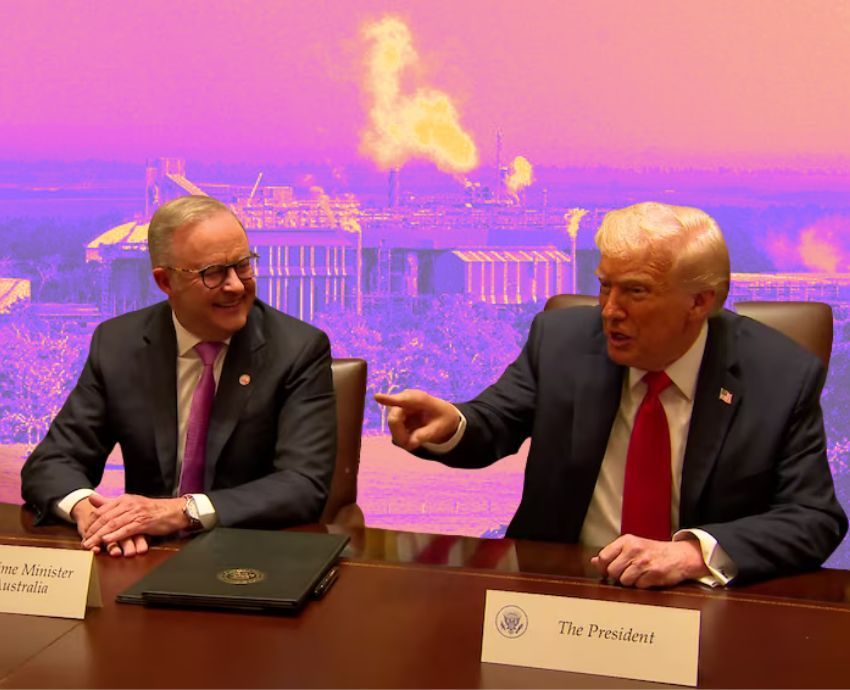
In front of an accommodating United States President Donald Trump, Prime Minister Anthony Albanese, visiting the White House on October 20, performed few transgressions and many feats of compliance.
In an attempt to seize a share of a market currently dominated by China, Albanese placed Australia’s rare earths and critical minerals at the disposal of US strategic interests.
The framework document focusing on mining and processing of such minerals is drafted with the hollow language of counterfeit equality. The objective “is to assist both countries in achieving resilience and security of minerals and rare earths supply chains, including mining, separation and processing”.
The necessity of securing such supply is explicitly noted for reasons of war or, as the document notes, “necessary to support manufacturing of defense and advanced technologies” for both countries.
The US and Australia will draw on the private sector to supplement government initiatives (guarantees, loans and equity), an incentive bound to cause much joy among mining executives.
Within six months, there will be “measures to provide at least $1 billion in financing to projects located in each of the United States and Australia expected to generate end product for delivery to buyers in the United States and Australia”.
Albanese agreed that the US Department of War will invest in constructing a 100 metric ton-per-year advanced gallium refinery in Western Australia, “further advancing self-reliance in critical minerals processing”. The new joint refinery will be based at Wagerup, 120 kilometres south of Perth, located at US mining giant Alcoa’s existing alumina refinery. Gallium, found in trace amounts in bauxite, is used primarily in the production of semi-conductors and weapons technologies, and can be a substitute for mercury.
The inequality of the agreement does not bother analysts such as Bryce Wakefield, chief executive officer of the Australian Institute of International Affairs, who thinks Albanese scored something of a “win”.
He identified the benefits in the critical minerals framework, which, he thinks, will be “the backbone for joint investment in at least six Australian projects”. The agreement, he said, would “counter China’s dominance over rare earths and supply chains”.
Much of what was agreed between Trump and Albanese was barely covered by the media, despite the distribution of a White House factsheet. The extortionate deal signed off by Albanese also involved agreeing to purchase US$1.2 billion in Anduril unmanned underwater vehicles and US$2.6 billion worth of Apache helicopters.
Of particular significance is the agreement to push Australia’s superannuation funds to increase investments in the US to US$1.44 trillion by 2035, which would increase the pool by US$1 trillion.
“This unprecedented investment will create tens of thousands of new, high paying jobs for Americans,” the factsheet noted.
Australia’s media focused on other things, including Trump’s ribbing to Kevin Rudd, Australia’s US ambassador, instead of taking issue with the cost of AUKUS with its chimerical submarines, or the voluntary relinquishment of various sectors of the Australian economy to US control.
Opposition leader Sussan Ley was adamant that Rudd be sacked; Australian broadcasters drooled at the prospect. Annabel Crabb offered a smidgen of humour, suggesting that Albanese, having gone into the Trump meeting “with the perennially open chequebook for American submarines, plus an option over our continent’s considerable rare-earths reserves” was bound to come with some human sacrifice hovering “in the ether”. She seemed to forget his previous martyrdom by the Labor Party at the hands of his own deputy Julia Gillard in June 2010.
In this grand abdication of responsibility by the media and bought think tankers, there was little detail discussed about Australia’s control over its own affairs by the US.
It was all babble about Trump’s views and whether, in the words of foreign minister Penny Wong, Rudd “did an extremely good job, not only in getting the meeting, but doing the work on the critical minerals deal and AUKUS”.
For the experts moored in antipodean isolation, Rudd had either been bad by being disliked for past remarks on Trump, or good in being a representative of servile facilitation.
[Binoy Kampmark lectures at RMIT University.]